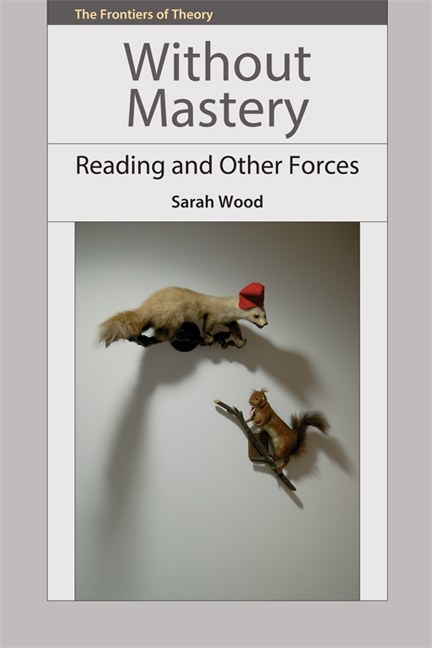Book contents
- Frontmatter
- Contents
- Series Editor's Preface
- Acknowledgements
- Epigraph
- Through the Reader
- Inventing the Reader
- Try Thinking As If Perhaps
- A Mere Instinctive Deconstruction
- Close to the Earth
- Beyond Me Nowhere But This Earth
- Edit
- Reading Matters
- Some Thing, Some One, Some Ghost (About the Fires of Writing)
- Nightshift
- Too Late To Begin?
- Notes
- Index
Inventing the Reader
Published online by Cambridge University Press: 05 August 2016
- Frontmatter
- Contents
- Series Editor's Preface
- Acknowledgements
- Epigraph
- Through the Reader
- Inventing the Reader
- Try Thinking As If Perhaps
- A Mere Instinctive Deconstruction
- Close to the Earth
- Beyond Me Nowhere But This Earth
- Edit
- Reading Matters
- Some Thing, Some One, Some Ghost (About the Fires of Writing)
- Nightshift
- Too Late To Begin?
- Notes
- Index
Summary
And first I sang, as I in dream have seen Music wait on a lyrist for some thought, Yet singing to herself until it came.
(Robert Browning, Pauline)What are we waiting for? Where will this writing be in forty or fifty years? If I want to think of myself as someone who works in a university, the present can be defined for me. Bureaucratic, managerial language offers to tell me who I am and what I am for. Official mission statements situate what British institutions now call ‘HE’ (who HE?) in the contemporary – painting a context of massive inevitabilities bearing down upon ‘a global environment’ described in terms of ‘competition and collaboration’. The space enclosed in this way gives the impression of being simultaneously vast and narrow. These documents tell HE about an ever-accelerating feedback loop between itself and a ‘changing world’ in which change has been instituted and reified (‘Opportunity, Choice and Excellence’, p. 9). They exhort the addressee: Keep up! Innovate! Respond! Rescue! Foretell! One urgency drives out the next. Realism is the only way: thought is drafted into the service of a describable present, a predictable future and a context that can in principle be summed up and made subject to discussion. Talk of the global economic situation claims each of us as a small part of an uncontrollable whole. Our agency is reduced to competing and ensuring a return on investment: ‘reforms to higher education in England will be implemented against the backdrop of an increasingly competitive global environment and the need to ensure that the very substantial investment being made in higher education is used to best effect’ (p. 4). Of course, there is more to it than economics. ‘Opportunity, Choice and Excellence’ lists other international issues for HE to respond to: climate change; disease and the risk of pandemic; energy, food and water security; and the effects of new technology on learning and on how ‘we assimilate and analyse data’ (p. 3). The language of management strategy wants to foresee everything, including two concerns of the present book: climate change and reading. Institutional models of risk assessment and measurement by key performance indicators are designed to take care of all eventualities, even as the urgent calls for response and innovation go out.
- Type
- Chapter
- Information
- Without MasteryReading and Other Forces, pp. 14 - 23Publisher: Edinburgh University PressPrint publication year: 2014



